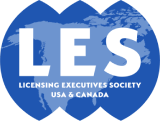In the world of intellectual property (IP), valuations are a frequent ask. They are, of course, a critical part of our work and are necessary for IP protection. I’m often asked how to do a valuation, and the honest answer is that the mechanics of a valuation are usually straightforward. More important than the mechanics of actually doing one is knowing what information you need on hand before you start and how to gather those details.
Collecting the necessary information can be a daunting task, especially in a large organization. In my experience, it comes down to relationships and knowing who to ask. As a licensing professional, it’s critical to know people across departments – from R&D, to finance and accounting, to strategy and beyond. These are the folks who will get you the information you need to make executing your valuation a seamless and painless process.
Here’s what you need to know before you even put pen to paper (or more accurately, before you start typing in excel). Organize your conversations with the appropriate stakeholders in your company, and make sure you can address the following.
Know what you are valuing.
This may sound obvious, but it’s a common stumbling block. It’s important to define what you’re valuing very explicitly. Often, the definitions are too loose, and you can’t accurately value something if you don’t know the boundaries of the intellectual property you are valuing. For example, if you are valuing a patent that covers only part of a larger product, be sure you know where your patent coverage ends and the rest of the product begins. Similarly, if you are valuing trade secrets or know-how, take time to understand the actual trade secrets themselves or the actual people within your organization that have the know-how, and ask those people about what their knowledge includes.
Know who created the asset you’re valuing and who currently owns it.
It’s important to know who was involved in the creation of the asset and who has a claim on it. Was it created by an individual or a team? Is there more than one party that owns it and do those rights impact the value?
Understand the development process of the asset you’re valuing.
How much time and resources did it take to develop the asset? What did it cost to develop? Were there out of pocket costs? Was part of it purchased from another industry participant? Make sure you understand the full economic history of the asset.
Be aware of all the anticipated uses of the asset.
It’s important to ask about any and all anticipated uses, including what products or services the asset may be incorporated into. Will it be licensed to other parties for use? It’s critical to know all the different ways you could make money from this asset.
Identify the competition.
Make sure you have a clear understanding of the competitive landscape. Who are the competitors? Which way is the industry moving? Is the asset being valued early stage in the industry or is it something more advanced with an incremental improvement?
These are the types of questions you must ask of your organization before you can sit down and begin calculations. While this is not an exhaustive list, it touches on all the categories of questions you must address before beginning the process. Gathering the information needed is the most time-consuming part of the whole process, but it’s a critical first step to ensuring a successful – and accurate – valuation. Try to keep ahead of these questions, and I think you’ll find that the process of executing a valuation, which I’ll address in a later post, will be much more straightforward and painless.
Learn more about LES membership here, and be sure to follow us on Twitter, LinkedIn and Facebook.
About Michele Riley

Michele Riley, CPA, CFE, CFF has been a member of LES (USA & Canada) since 2010. She currently serves as the Treasurer of LES and has volunteered for many years as an instructor for the CLP review course and other valuation classes. She is a Managing Director at Stout Risius Ross, an international financial advisory firm, and she focuses her practice on damages and valuation in intellectual property litigation and transactions. Michele has a BA in Physics from Emory University and an MBA from the University of Maryland. She started her career as a commissioned officer in the National Oceanic and Atmospheric Administration.
Michele is a native of Orlando but has lived in the Washington DC area for over 20 years and enjoys being very active in her community. She and her husband Jack have two children.

